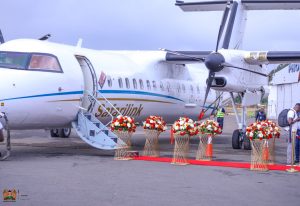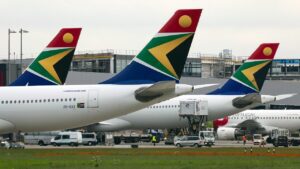The debate over Africa’s aviation future is heating up as calls for an Open Skies Policy gain momentum. Advocates of liberalised air access argue that opening the continent’s skies to more foreign carriers would lower ticket prices, boost tourism, and make Africa more competitive globally. Yet industry experts caution that without proper safeguards, such policies risk undermining local airlines and deepening Africa’s dependence on international operators.
Africa’s aviation industry already struggles with structural inefficiencies. High operating costs, driven by expensive fuel, leasing charges and financing rates, make it difficult for local carriers to compete with international counterparts. Unlike airlines in Europe, the Middle East or Asia, African operators function in fragmented markets where protectionism and underinvestment restrict growth. Opening the skies without first strengthening local carriers would leave them exposed to stronger foreign airlines capable of dominating the market.
One solution under discussion is the consolidation of African airlines. By pooling resources, harmonising operations and building joint route networks, African carriers could achieve the economies of scale required to expand direct intra-regional services. This would make flights more affordable and reliable for African travellers while also reducing the revenue outflow currently captured by international airlines.
Africa has attempted airline unity before. Air Afrique, established in 1961 by eleven West African nations, once symbolised pan-African cooperation. Based in Abidjan, it carried hundreds of thousands of passengers annually and served as a tool of economic development. However, Air Afrique collapsed in 2002 following financial mismanagement and conflicting shareholder interests. Its routes were subsequently taken over by foreign carriers, underscoring both the potential and the risks of multinational airline ventures.

Recent efforts demonstrate a renewed willingness to explore collaboration. The Strategic Partnership Framework signed between Kenya Airways and South African Airways in 2021 offered a promising model for pan-African consolidation. Supported by both governments, the partnership sought to share services, coordinate fleet deployment and integrate route networks to achieve cost savings. While progress has been slow, the framework remains a viable example of how African carriers could build strength through partnership.
Consolidation should therefore be prioritised before full-scale liberalisation. Open Skies can only deliver lasting benefits if African airlines are empowered to compete on equal terms. Aviation is both an economic driver and a strategic sector tied to national pride, connectivity and trade. Over-reliance on foreign carriers for intra-African connectivity could erode sovereignty and limit the continent’s ability to control its own development path.
With Africa’s population projected to double by 2050, demand for affordable and efficient air travel is expected to grow rapidly. The critical question is whether African airlines will be strong enough to meet this demand, or whether liberalisation without safeguards will leave the skies dominated by foreign operators.
The future of Open Skies in Africa lies in balance. Protecting African airlines while encouraging partnerships that build capacity is essential. Consolidation, innovation and stronger governance will determine whether the policy becomes a tool for shared growth or a missed opportunity that benefits external players more than Africa itself.



